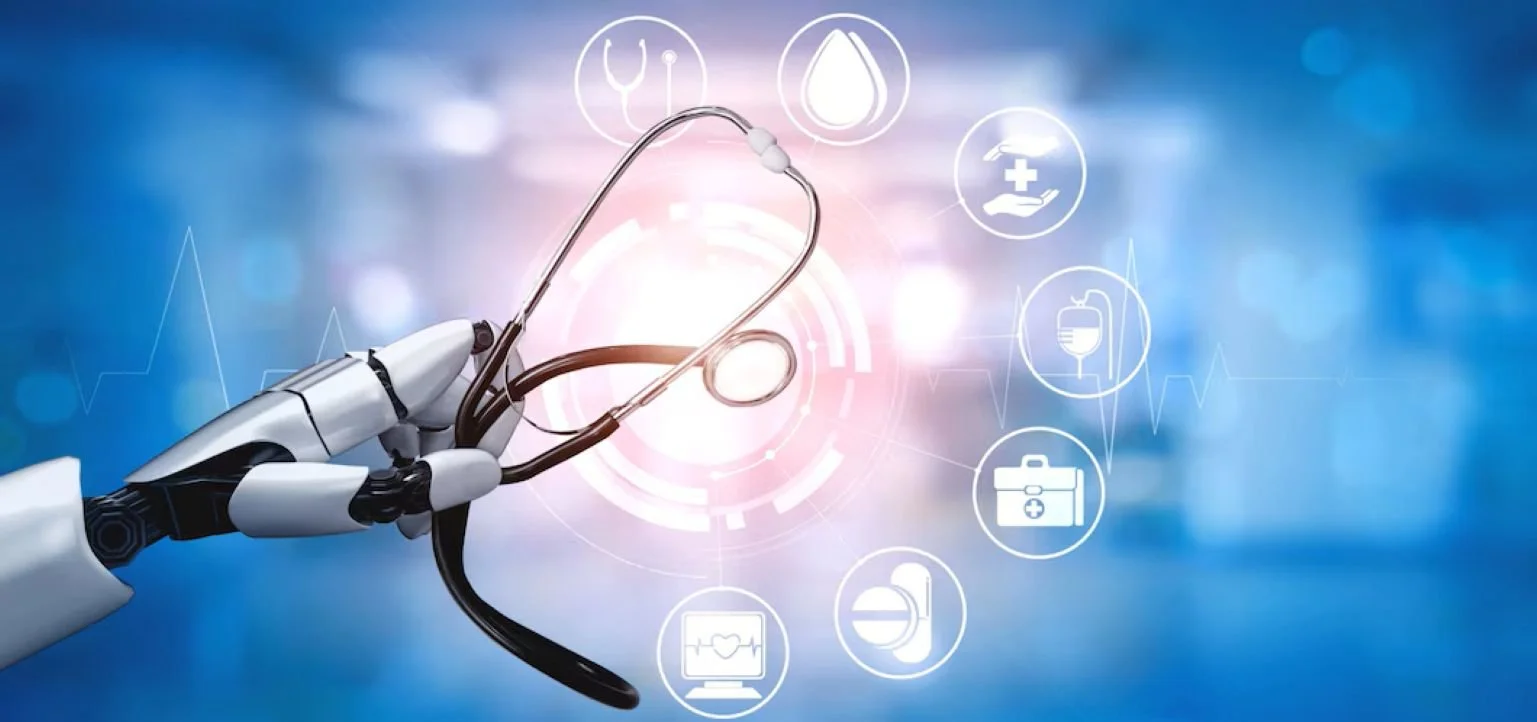From Diagnosis to Drug Discovery: How AI Is Changing Healthcare
Artificial Intelligence (AI) and Machine Learning (ML) are reshaping the healthcare landscape, offering innovative solutions to age-old challenges. From improving diagnostic accuracy to personalizing treatment plans, these technologies are enabling more efficient, precise, and accessible healthcare.
The Growing Role of AI in Healthcare
The integration of AI in healthcare is gaining momentum. In 2021, the global AI healthcare market was valued at $10.54 billion, growing to $13.82 billion in 2022. Remarkably, it is forecasted to reach $164.10 billion by 2029. In 2024, the market value rose to $16.61 billion and is projected to hit $630.92 billion by 2033, driven by AI’s transformative impact on healthcare services and patient care.
Enhanced Diagnostics: Leveraging AI for Accuracy
One of the most impactful uses of AI in healthcare is in diagnostics. Advanced algorithms now assist radiologists in analyzing medical imaging like X-rays and MRIs, accurately detecting anomalies such as cancer and neurological disorders. AI-driven diagnostic systems can identify diseases at earlier stages, leading to improved patient outcomes.
AI technology also enhances the diagnostic process in dermatology and ophthalmology. Smartphones equipped with AI-based applications can assess skin lesions and eye conditions, making healthcare more accessible, especially in remote areas.
Personalized Medicine and Predictive Analytics
AI’s ability to analyze vast datasets, including genetic information and medical records, makes it a powerful tool in personalized medicine. By predicting how individuals may respond to specific treatments, healthcare providers can create tailored treatment plans, enhancing both efficacy and safety.
Accelerating Drug Discovery
AI-driven algorithms accelerate drug discovery by predicting drug efficacy and optimizing delivery methods. This not only reduces the time and cost involved but also increases the chances of finding viable treatments for complex diseases.
Remote Patient Monitoring and IoT Integration
The integration of AI and IoT enables continuous remote patient monitoring through wearable devices. By analyzing data from these devices, AI can detect health abnormalities and alert healthcare providers, allowing for early interventions and reducing hospital readmissions.
Robotic Surgery: Precision and Control
Surgical robots powered by AI enhance precision in complex operations, minimizing recovery times and complications. These robots act as valuable surgical assistants, guided by human expertise but capable of executing tasks with remarkable accuracy.
Administrative Efficiency
AI streamlines administrative tasks such as appointment scheduling, patient record management, and medical billing, reducing human errors and saving valuable time for healthcare professionals.
Predicting Health Trends and Outbreaks
ML models are being utilized to predict disease outbreaks and monitor epidemiological patterns. During the COVID-19 pandemic, AI played a vital role in tracking virus spread and guiding public health decisions.
Future Prospects
AI in healthcare is not just a concept of the future—it’s an evolving reality. As AI continues to advance, its potential to enhance healthcare delivery and patient outcomes will only grow. The journey from AI-driven diagnostics to personalized treatment plans represents just the beginning of this transformative era.




